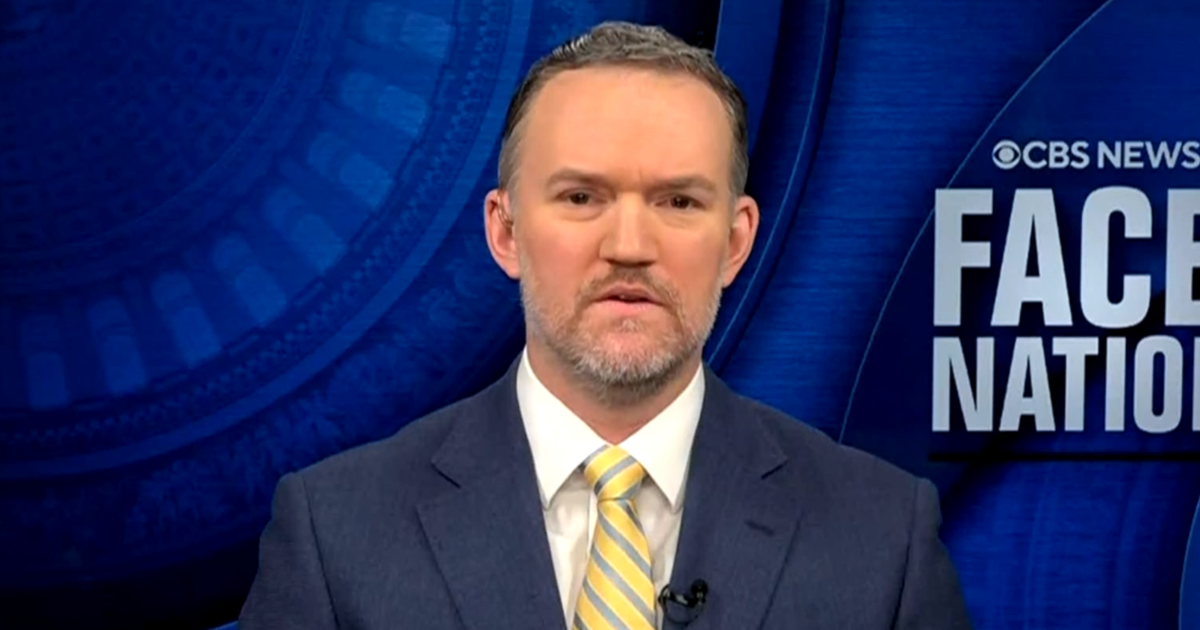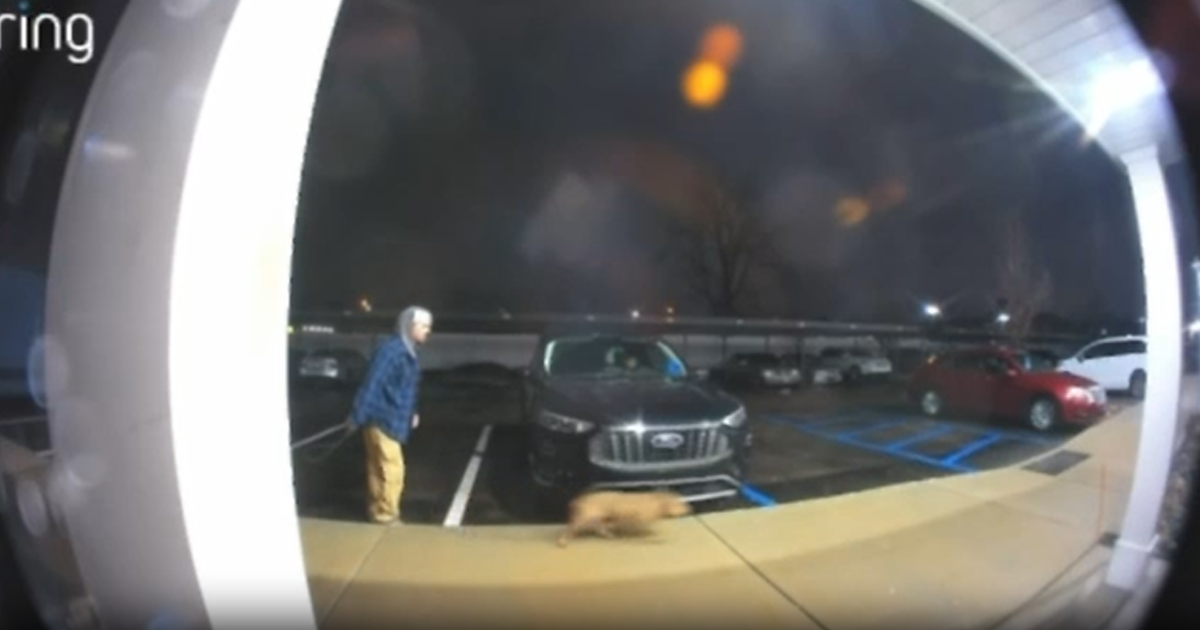Transcript: Senator Cory Booker discusses race on "Face the Nation," June 14, 2020
The following is a transcript of an interview with Senator Cory Booker that aired Sunday, June 14, 2020, on "Face the Nation."
MARGARET BRENNAN: For the Democratic perspective on policing, we want to speak now to New Jersey Senator Cory Booker, who joins us from his home in Newark. Good morning to you, Senator.
SENATOR CORY BOOKER: Good morning, MARGARET. Thank you for having me.
MARGARET BRENNAN: In Atlanta, was the killing of Rayshard Brooks an example to you of excessive use of force?
SEN. BOOKER: I was a mayor of New Jersey's largest city with a police department. If one of my officers shot someone in the back while they were fleeing with a non-deadly weapon, that is unjust use of force and unacceptable to community standards and- and very unfortunate and tragic.
MARGARET BRENNAN: Given the broader concern at the federal levels on how to come up with legislation that both sides can get behind, you heard Senator Scott say that when it comes to qualified immunity, the administration has made clear to him that is a poison pill. It cannot be in any kind of legislation. How do you offset the concern of the administration that qualified immunity helps- well, it's necessary because police need to make split second decisions and they can't be thinking twice in a way that inhibits them from doing their job. How do you offset that specific concern?
SEN. BOOKER: Well, let's understand that qualified immunity right now is not a Democratic supported thing. Clarence Thomas and conservative Supreme Court justices say that we need to reexamine qualified immunity. Some of my Republican colleagues in the Senate right now have come forward to me and said we need to reexamine qualified immunity. What qualified immunity does in this country as it allows a case in Washington where a pregnant woman, seven months pregnant, was dragged into a street for not signing a parking ticket and tased three times. No accountability. Those police officers were qualified- had qualified immunity. It's a case in Utah where a bicycle rider 100 yards away was shot multiple times by multiple police. And then they claimed it was just mistaken identity, no accountability in terms of qualified immunity. Even in Washington- and even in Oklahoma, a man with pneumonia, wandering, stumbling through a hospital unarmed, was shot and killed by police. So I could go through horrific example after horrific example. We have to ask ourselves as a society, do we want to have a nation where police officers who do really awful things cannot be held accountable to- to- through to civil rights charges? And that's unacceptable. And so I hear what folks are saying. But when there's so many conservative voices talking about qualified immunity and when we know that no one in America should be above the law, I think it's time that we change qualified immunity.
MARGARET BRENNAN: What you heard Senator Scott say, though, was the term poison pill, meaning this could- this could sink everything else. What about his idea that he floated there of decertification as a way to reduce officer misconduct?
SEN. BOOKER: Well, every American should think to themselves if your wife or daughter or family member was that pregnant woman who was brought out into the middle of a street for not signing a traffic ticket and tased three times, is decertification a real accountability? We are in a nation right now where the sense of what's possible has shifted. The bill that I just did with incredible partners like Kamala Harris and House members, that would have been poison pills just a- a month ago. This is a moment in American history where there are things in the Republican bill that allow still chokeholds or no-knock warrants, which are being banned right now from Kentucky to New York. This is not a time for lowest common denominator, watered down reforms. It's a time to stop the problem, because if- if someone's knee is on your neck, you can't take it halfway off and say that that's progress. We have the tools with which to stop people from dying. And any bill should have a ban on racial and religious profiling called for by George Bush in his first address to Congress. Any bill--
MARGARET BRENNAN: But are you saying- are you saying on this one particular issue that you will not sign any bill unless there is a reduction that would allow for it to be easier to prosecute bad cops?
SEN. BOOKER: Look, I- I- I have witnessed in my life the awful criminal justice system getting worse from 1980 till now, our criminal- our incarceration going up 500% in America. And I was part of a compromise bill to liberate thousands of people out of prisons. And so I did the best I can. And the first step we did to tear down a system of mass incarceration, in which the land of the free has one out of every three incarcerated women on the planet Earth, even though we're only five percent of the globe's population. So do I want progress? Yes. But when you- when we stop short and start talking about finding a bill that's the lowest common denominator it is meaning that we will revisit this again when another armed- armed black person gets killed and the nation erupts. We should be seeking to solve the problem,--
MARGARET BRENNAN: Right.
SEN. BOOKER: --pushing the bounds of the possible and getting as big of a coalition as we possibly can.
MARGARET BRENNAN: But you're saying that there is a chance here that this moment could- you could miss the moment, that Democrats or Republicans won't be able to come to a compromise?
SEN. BOOKER: No, I'm saying that we could miss the moment by not solving the problem and ending practices--
MARGARET BRENNAN: Yeah.
SEN. BOOKER: --that we know would make a difference to lives, things like having police misconduct registries--
MARGARET BRENNAN: Yeah.
SEN. BOOKER: --open to the public because sunshine is the best disinfectant. So I'm going to do everything I can in this moment that is- every day with artists of activism, nonviolent protesters out in the streets, every day with--
MARGARET BRENNAN: Well, I want to ask you- I want to ask you about this moment, because, I mean, it's an election year and emotions are already supercharged. The president this morning sent a tweet quoting Michael Moore, a filmmaker, said "Democrats shouldn't underestimate white male Trump supporters' rage and emotion." You heard my exchange with Senator Scott about whether it is ignorance or deliberateness to plan a rally around Juneteenth. Do you believe that you can come to a compromise with this administration on this issue?
SEN. BOOKER: Well, this is what I know. I know the heart of Tim Scott and senators like Senator Braun, who said to me he's- qualified immunity is on the table. We- we are one body of the United States Senate. And- and people of good heart and good spirit, regardless of what the president does. He can veto a bill, but we should come forward in this moment in history, which will be judged. We should put our best face- best faith efforts forward to put a bill--
MARGARET BRENNAN: Yeah.
SEN. BOOKER: --intact that will stop the kind of awful violence and- and killing of unarmed people that we see in our country. We can do that. We know what works.
MARGARET BRENNAN: OK.
SEN. BOOKER: And we know that half measures have not worked in the past from Ferguson to Minneapolis. We know what will work.
MARGARET BRENNAN: Well--
SEN. BOOKER: This is not a radical bill, but we can get this done.
MARGARET BRENNAN: We will watch. Thank you very much, Senator Booker. We'll be right back with Seattle Police Chief Carmen Best.



